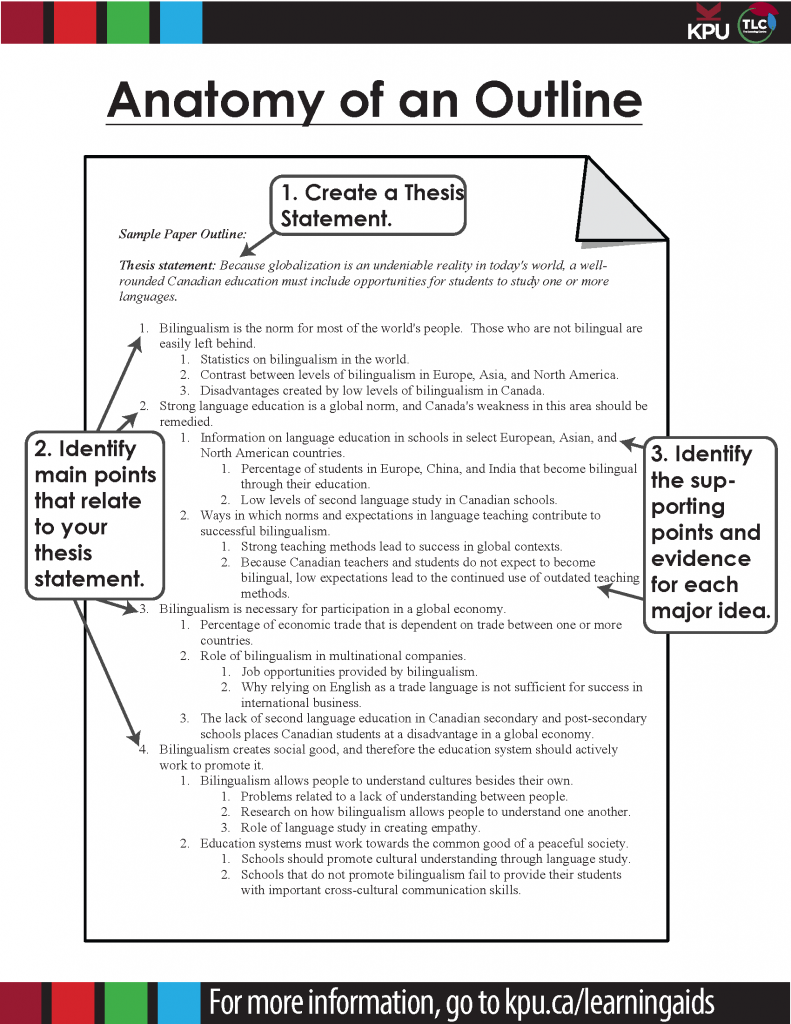24 Create an Outline
Before you begin writing, you will want to create an outline. An outline helps you to organize your ideas into a clearly presented argument or report.
Step 1: Create a Thesis Statement
If you are writing an essay or research paper, you will begin by writing a draft thesis statement. A thesis statement is a concise presentation of the main argument you will develop in your paper. Write the thesis statement at the top of your paper. You can revise this later if needed.
The rest of your outline will include the main point and sub-points you will develop in each paragraph.
Step 2: Identify the Main Ideas that Relate to your Thesis Statement
Based on the reading and research you have already done, list the main points that you plan to discuss in your essay. Consider carefully the most logical order, and how each point supports your thesis. These main ideas will become the topic sentences for each body paragraph.
Step 3: Identify the Supporting Points and Evidence for Each Major Idea
Each main point will be supported by supporting points and evidence that you have compiled from other sources. Each piece of information from another source must be cited, whether you have quoted directly, paraphrased, or summarized the information.
Step 4: Create Your Outline
Outlines are usually created using a structure that clearly indicates main ideas and supporting points. In the example below, main ideas are numbered, while the supporting ideas are indented one level and labelled with letters. Each level of supporting detail is indented further.

Try it!
Create an outline for a paper or report for one of your courses.
- Write a thesis statement that clearly presents the argument that you will make.
- Use a multi-level outline, similar to the one in the example above, to create an outline before you begin writing.
Extend Your Learning
Outlining can help you to clarify your ideas, demonstrate if you have adequate support for your paper and provide a way to complete it in manageable stages.

